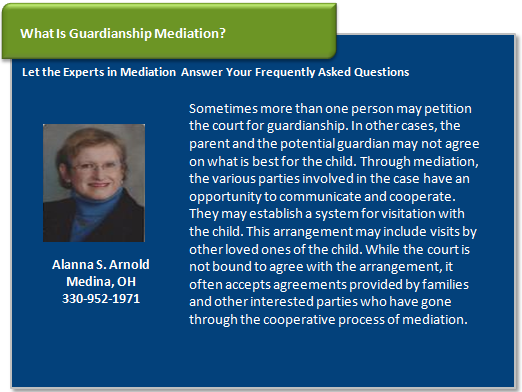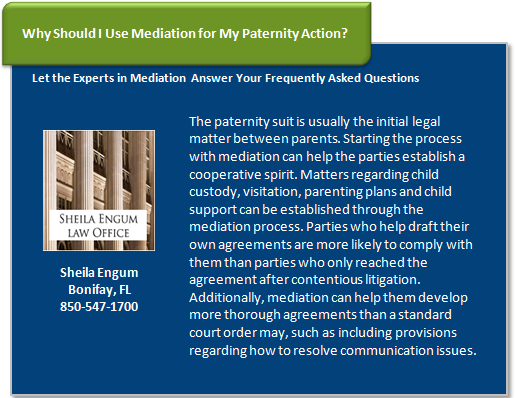
When Guardianship May Be Ordered
 When referring to minors, guardianship is usually the process involved when a person who is not a parent of a minor takes over parenting responsibilities. In essence, the court gives custody of the minor child to an adult relative, caregiver or other individual. This term is also used to refer to someone who takes over the property of a minor child.
When referring to minors, guardianship is usually the process involved when a person who is not a parent of a minor takes over parenting responsibilities. In essence, the court gives custody of the minor child to an adult relative, caregiver or other individual. This term is also used to refer to someone who takes over the property of a minor child.
In some circumstances, guardianship appointments arise because of a catastrophe. Both of the parents may have died in an accident or a single parent’s health may have declined to the extent that he or she can no longer care for the child. Similarly, if a parent is deployed overseas and cannot take the child with him or her, a guardianship may be considered.
In other cases, guardianship may become necessary after the child was abandoned. A parent may be unfit to raise the child at the current point in time due to financial, emotional, mental or other issues. The parent may be suffering from substance abuse and may need to be treated at a rehabilitation center. The parent may also be facing impending incarceration.
When making a determination regarding whether guardianship should be appointed, the family court judge may review the evidence. The standard that the judge usually uses is to determine what is in the best interests of the child. Each state has different factors that the court may consider, such as a history of abuse, a history of substance abuse, the child’s preferences if he or she is old enough or is able to understand and explain his or her wishes, the experiences of the potential guardian, the relationship between the potential guardian and the child and whether the child would suffer harm from being removed from his or her home in order to be placed with the guardian.
Sheila Engum

Aspects of a Paternity Action
 Studies show that more than one-half of children with mothers under the age of 30 are born out of wedlock. While many states have laws that provide that spouses have equal rights to the children born of the marriage, this is often not the case for unmarried parents. Instead, a father may need to file a paternity action in order to start the legal process of identifying him as the child’s biological father and establishing his rights to access to the child. Similarly, a mother may wish to file a paternity action in order to establish the father’s obligation to financially support the child.
Studies show that more than one-half of children with mothers under the age of 30 are born out of wedlock. While many states have laws that provide that spouses have equal rights to the children born of the marriage, this is often not the case for unmarried parents. Instead, a father may need to file a paternity action in order to start the legal process of identifying him as the child’s biological father and establishing his rights to access to the child. Similarly, a mother may wish to file a paternity action in order to establish the father’s obligation to financially support the child.
Child Support
Once paternity has been declared under a court order, child support may be figured based on the relevant child support formula in the jurisdiction where the child resides. There may be factors that the court considers to adjust the amount of support up or down.
Child Visitation and Child Custody
Most states treat the obligation to financially support the child separate from the right to have access to the child through visitation or custody. One parent may petition the court for child visitation or child custody. The courts often consider legal custody and primary physical custody separately with legal custody being the right to make important decisions regarding the child.
Parenting Plan
Many jurisdictions encourage or require parents to draft a parenting plan in which the arrangements regarding a child are clearly laid out. Parenting plans may include information about how holidays will be shared, how decisions regarding the child will be made, how information about the child will be shared and how other parenting issues will be resolved. Parenting plans are often completed in a cooperative manner through the process of mediation, which may be a voluntary act by the parties or ordered by the court.
Why Sober People Fail Field Sobriety Tests
 The standard field sobriety test is comprised of three tests: the one-leg stand, walk and turn and the horizontal gaze nystagmus. This test monitors a person’s gross and fine motor abilities, as well as the cognitive ability of a subject to listen to instructions and follow them. These tests are supposed to help law enforcement officers determine if a driver is impaired. However, poor performance on one or more of these tests can be due to other causes that have nothing to do with sobriety.
The standard field sobriety test is comprised of three tests: the one-leg stand, walk and turn and the horizontal gaze nystagmus. This test monitors a person’s gross and fine motor abilities, as well as the cognitive ability of a subject to listen to instructions and follow them. These tests are supposed to help law enforcement officers determine if a driver is impaired. However, poor performance on one or more of these tests can be due to other causes that have nothing to do with sobriety.
Medical Conditions
For example, the subject may suffer from a medical condition that makes it difficult for him or her to perform the tests. A one-leg stand may be difficult for someone who has a medical condition related to his or her knees or back. Additionally, some medications may affect a person in ways that are associated with alcohol intake without actually impairing the individual. Overweight individuals may also have difficulty performing certain tests.
Balance Problems
A number of medical conditions also impact a person’s balance. However, poor balance may simply be a natural characteristic that causes the individual to perform poorly on such tests.
Age
Individuals who are over the age of 65 should not usually be given the test.
Environmental Factors
Roads that are slippery due to rain, sleet or snow may make it difficult to perform such tests. Windy conditions can make it difficult for individuals to pass such tests. The same is true if the road is rugged or has cracks in it. Even the subject’s shoes can impact the results of a field sobriety test.
Tiredness
Another possible factor is that the subject is tired. Drivers are often pulled over during the middle of the night when they may be heading home to finally get some sleep. Tiredness can affect their dexterity and overall performance on these tests.
October 30, 2015
Families struggling to care for elderly turn to mediation – Trained mediators increasingly are helping families at odds when it comes to resolving emotional disputes over the care and finances of aging parents.
Divorce and the Shared Mortgage – Deciding what to do with the house can be a major quandary for couples getting a divorce, particularly when they share a mortgage.
Repossessions spike 66% as foreclosure crisis lingers – New foreclosures may be back to nearly normal, but the mess from the epic housing disaster in the last decade is far from gone. Bank repossessions, the final stage of the foreclosure process, jumped 66 percent year over year in the third quarter of this year, according to RealtyTrac, a foreclosure sales and analytics company. It’s the largest annual rise ever recorded in bank repossessions by RealtyTrac. More than 123,000 homes went back to the bank in just three months.





